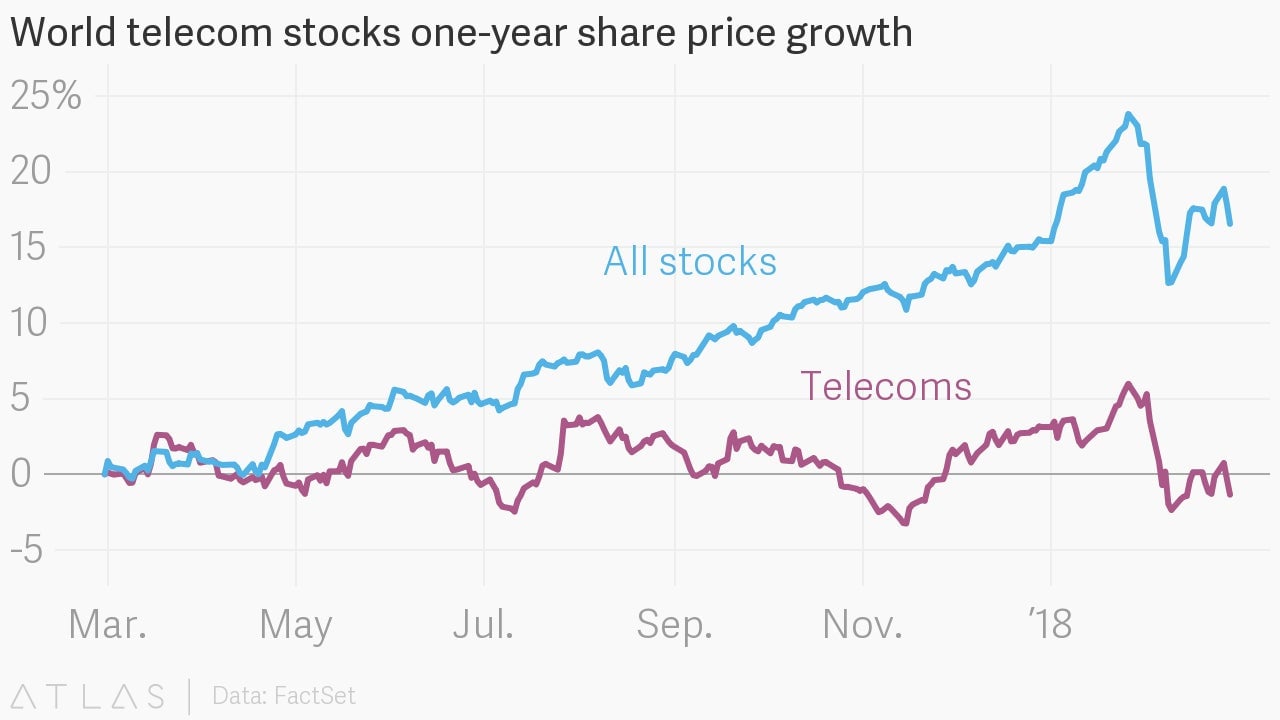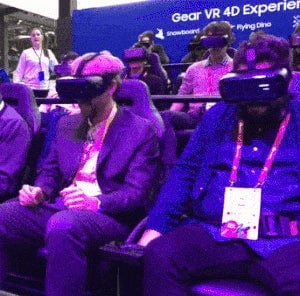Missed connections, heading home, and news from elsewhere
Hello, Mobile World Congresspeople!

Hello, Mobile World Congresspeople!
It’s time to power down. Sorry to say it, but you’ll have to wait until next year to drop terms like “39GHz RFIC” and “5G NR mmWave IoDT” into cocktail conversation without being self-conscious.
It has been a pleasure to be a part of your routine this week. Let’s stay in touch! As a reader of this newsletter, you’ll receive our regular Quartz Daily Brief—if you don’t get it already—as well as coverage from future tech events like SXSW. (If that’s not for you, simply unsubscribe at the bottom of this email.)
Our takeaways from Mobile World Congress 2018 will hit your inbox on Saturday. 👋
Tips for next time
Apologies for the delayed arrival of today’s newsletter. (Technology, eh?) Instead of the usual “what to watch for today” highlights, keep these tips in mind for next year…
Beat the queues. Sticking around for the last day of the conference is a shrewd move if you want to check out all the fun things that exhibitors built to attract visitors (and long, slow-moving lines). This year, Samsung had a moon-walking simulator and VR roller coaster (more on that below); HTC let you fly a balloon in VR; Oath ran a slot-machine-style booth where you could win prizes; and SK Telecom set up a Wheel of Fortune-style game show where you could… also win prizes.
Hack the halls. If the thought of trudging from Hall 7 to 2, to 5, and back to 7 again in search of some obscure phone you heard about over coffee fills you with dread, here’s a tip: Pretty much every major manufacturer’s latest-and-greatest phones are on display at Qualcomm’s booth. The chipmaker features every flagship device that uses its chips, which is most of them, in one place. We wish we’d figured this out earlier—so much more time for tapas!
What everyone is talking about
Our relationship with our phones can be deeply personal—intimate, even. There are few places outside of this week in Barcelona when perfect strangers are willing, or frankly eager, to share their most personal devices and talk about all the things they get up to on them. Advances in always-on digital assistants and facial recognition mean that our phones are also listening to us and reading our expressions. This level of hyper-specific personalization is a brand marketer’s dream, which was the subject of conversation in several sessions on the expo’s penultimate day.
Marketing chiefs discussed how expectations have been raised for timely, relevant information (and, yes, advertising) to be delivered to devices, with any missteps seen as particularly offensive intrusions into a deeply personal space. At the same time, AI experts urged mobile operators to embrace the algorithms that are getting better and better at judging our tastes and anticipating our needs. Never forget, warned one CMO, that “there is a person in personalization.”
More highlights from yesterday
Quartz is coming to Facebook Messenger. We made the announcement on stage and gave folks an early look before the bot launches next week—at SXSW, natch. (We just go from one trade show to the next.) You can say hi to Quartz in Messenger, and we’ll be sure to let you know when it’s alive.
Walking and talking. The oversubscribed “Power of Diversity” walking tour, put on by executive coaching and advocacy group The Female Quotient, wound its way through the halls on Wednesday, stopping by the booths of SAP, Visa, IBM, and others to hear from female leaders at those firms. Over the course of three hours, there was much discussion about how more diversity is needed in the tech industry, especially in the senior ranks, which will spur innovations that better serve women.
Telcos and vendors swipe right. Huawei said it will work with BT and EE to trial 5G in the UK. This follows five big telcos—AT&T, Orange, China Mobile, Deutsche Telekom, and NTT DoCoMo—forming something called the ORAN Alliance (that’s Open Radio Access Network), and T-Mobile teaming up with Ericsson and Nokia to start building 5G networks in 30 US cities this year. That’s more than the 5G trial cities announced by rivals AT&T (12) and Sprint (six), although Sprint said it owns more relevant spectrum than all the others.
Chart interlude
Bright-eyed telco execs gather in Barcelona every year to rave about futuristic technologies and world-changing breakthroughs. Many, though, fret in private about what shareholders will think about them next quarter, and bemoan market skepticism about an industry struggling to shed its image as “dumb pipes.”

Mike likes…
Virtual thrills. Mike has shied away from VR roller coasters after a horrible experience on one a few years back, but Samsung’s elaborate setup was short, smooth, and set in a weird world that mixed the Winter Olympics with Tron.

This is a thing now?
After a week wandering the halls of the Fira, we can confirm that all of these things are now things: pop-up selfie cameras, fingerprint-sensing screens, smart showers, phone cases that double as drones, mint plants that autonomously earn cryptocurrency, pop-up ads on caller-ID screens, NFC fridge magnets for ordering Campari, self-cooling graphene sandals, sext-filters, robot butlers, disposable mini fuel-cells for charging phones, and battery-powered desktop smart bongs.
Seen and heard
“I’ve made the fatal decision of giving out too many business cards and now I’m being harassed on text.”—A harried delegate striding through the Fira.
A startup founder who recently raised a large sum of money from SoftBank, describing founder Masayoshi Son’s ambitions for automation and smart cities: “He was at 50,000 feet, then dropping down to 5,000 feet, then going back up. He has the processing power to do that… They’re not ****ing around.”
Person 1: “I’d like to take a vow of silence.”
Overheard at one of the wrap-up parties in central Barcelona, as the clock approached midnight: “Where’s Luke? He’s got the drugs.”
Chinese connected-car startup Byton blanketed the Fira train station in ads, but much like 5G, an actual Byton car doesn’t really exist yet. The message of the billboards: “See you next year at MWC.”
News from around the world
White House communications director Hope Hicks resigned. Trump’s longest-serving aide will be the fourth person to depart the post. She quickly rose through the ranks after joining the Trump Organization in 2014 with no political experience. On Tuesday she admitted to the House Intelligence Committee that she occasionally told “white lies” for the president.
Spotify filed for a $1 billion IPO. The Swedish music-streaming giant will be listed on the New York Stock Exchange under the ticker symbol SPOT. In an unusual move, the still-unprofitable company will go public without any bank underwriters, which lets the market set the opening share price.
Moon Jae-in said Tokyo can’t declare the “comfort women” issue settled. The South Korean president called Japan’s wartime abuse of Korean sex slaves “crimes against humanity.” In December he described a 2015 deal to settle the matter—struck by ousted president Park Geun-hye’s administration—as “seriously flawed.”
Matters of debate
Doing the splits is a terrible reason to commit to a daily yoga habit. Flexibility is great, but it’s better to simply enjoy the practice sans any expectations.
Kids who play more will get better jobs. Play is crucial for establishing foundations of social, emotional, and academic learning.
Autonomous cars won’t fix cities. We should focus instead on moving greater numbers of people (paywall) by optimizing city grids for mass transit.
Surprising discoveries
Sex sells, even for monkeys. Rhesus macaques prefer evocative imagery in advertising, preferably featuring female macaque backsides or dominant males.
A French company wants to bottle your unique scent. Its secret process involves extracting molecules from clothing.
New Orleans has been a secret pilot for predictive policing technology. Even the city council didn’t know about the police department’s deal with Palantir, co-founded by Peter Thiel.
We hope you have a safe trip home, and we look forward to seeing you in Barcelona next year. This is Jason, Joon, and Mike signing off.
